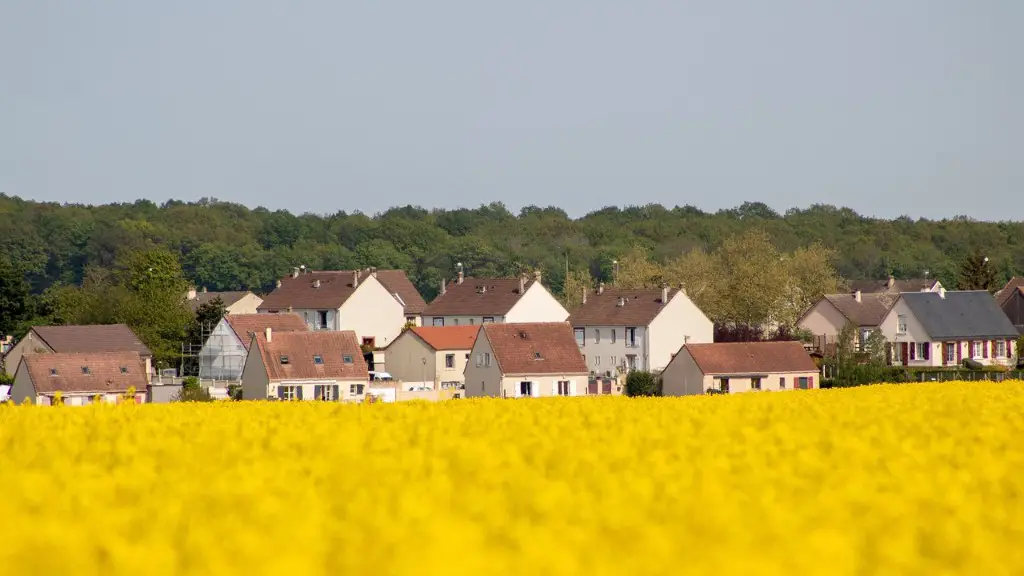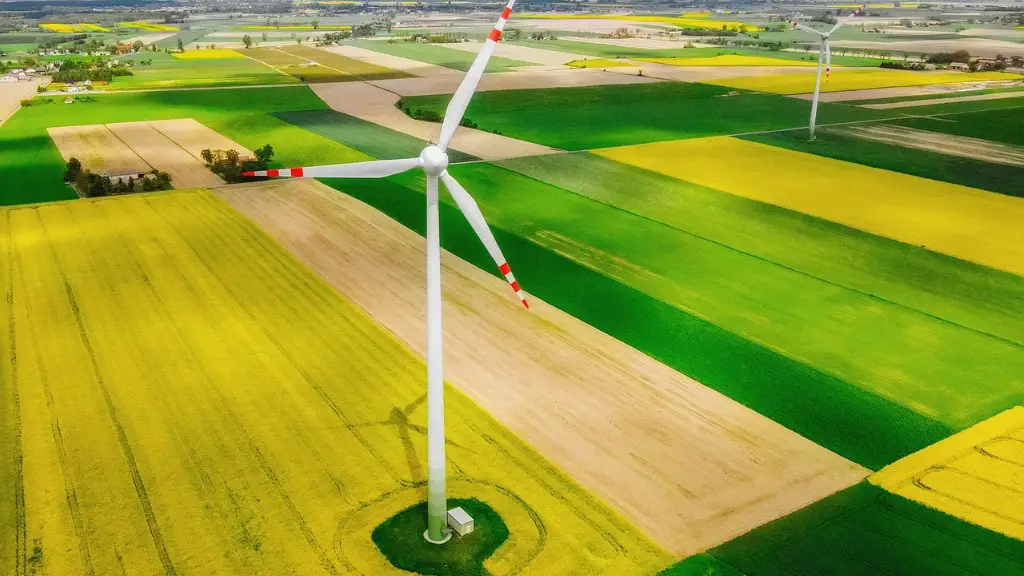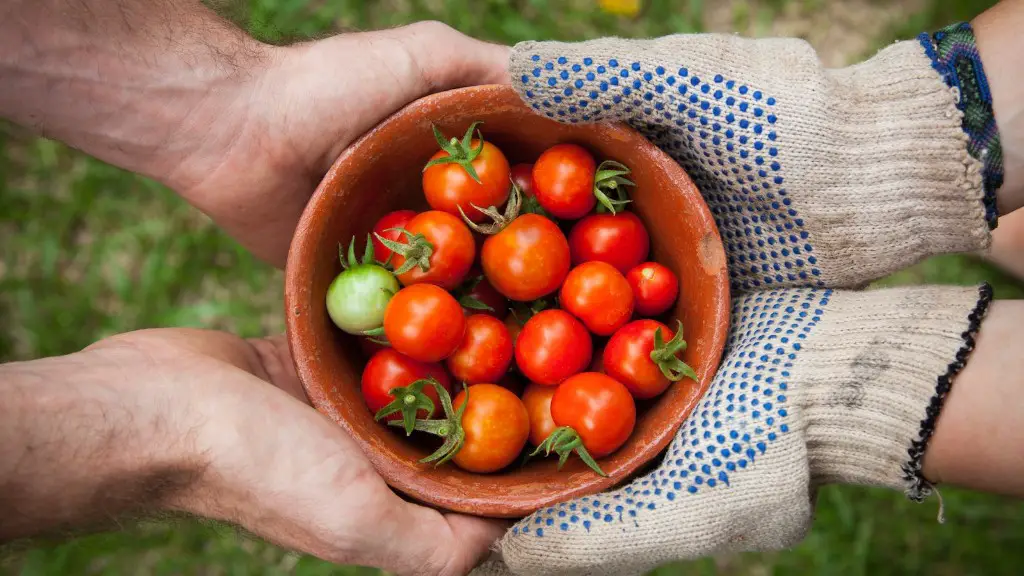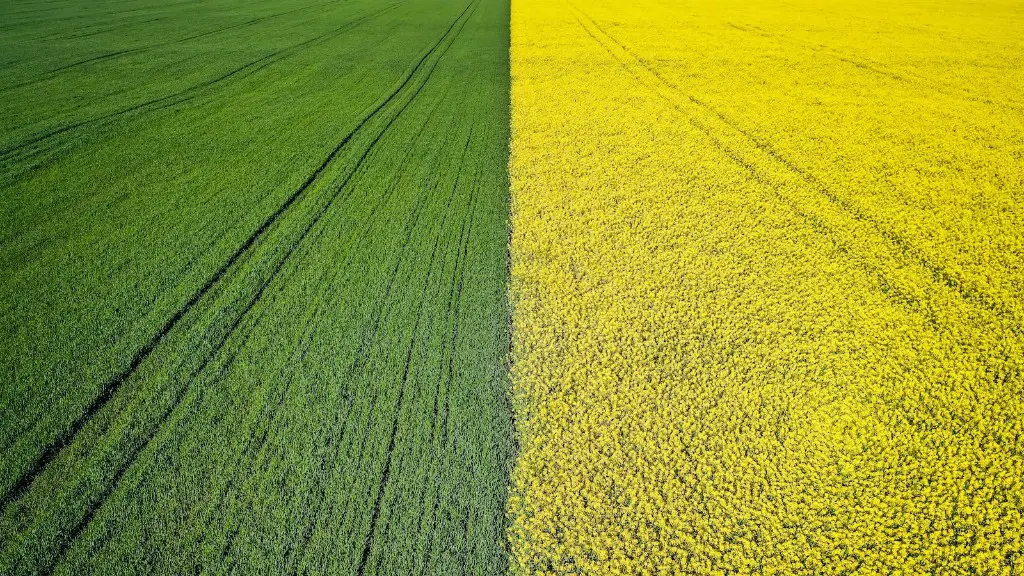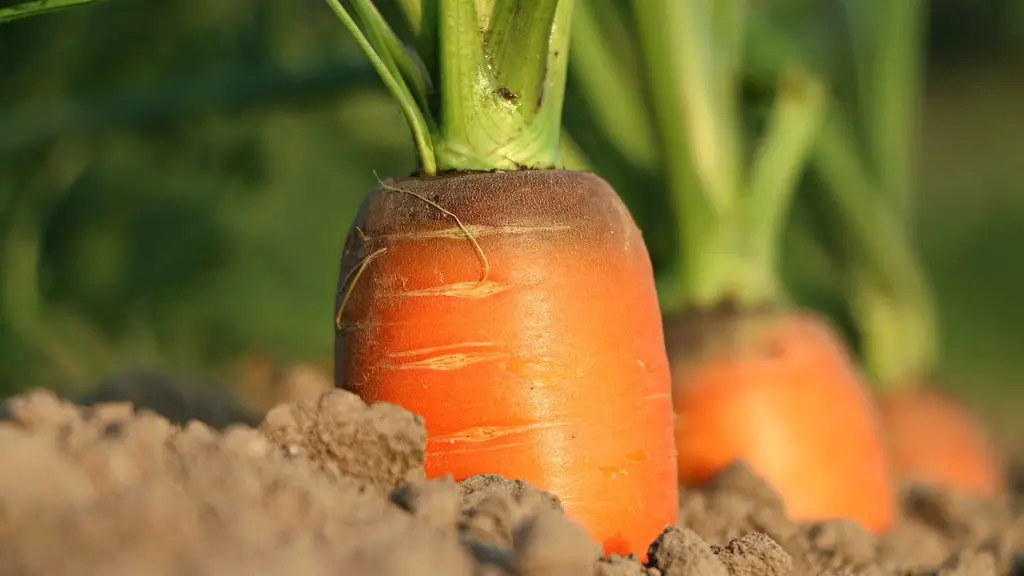Agriculture is the art and science of cultivating the soil, growing crops and raising livestock. It includes the production of plants for food, fuel, fiber, and other purposes. Agriculture is a major source of food and other products for people around the world. It is also a major source of employment.
Agriculture is the process of producing food, feed, fiber and other desired products by the cultivation of certain plants and the raising of livestock.
What is the full meaning of agriculture?
Agriculture is an art and science that deals with the cultivation of land, growing crops and raising livestock. It includes the preparation of plant and animal products for people to use and their distribution to markets. Agriculture is a vital sector of the economy and plays a key role in the development of a country.
Agriculture is the world’s largest industry, employing more than one billion people and generating over $13 trillion dollars worth of food annually. Pasture and cropland occupy around 50 percent of the Earth’s habitable land and provide habitat and food for a multitude of species. However, agriculture also has a significant impact on the environment, contributing to deforestation, soil erosion, water pollution, and greenhouse gas emissions. Increasing demand for food and biofuels is likely to lead to further expansion of agricultural land, posing a threat to natural ecosystems.
What is agriculture short essay
Agriculture is the main occupation in India. Two-third of the population is dependent on agriculture directly or indirectly. It is not merely a source of livelihood but a way of life. It is the main source of food, fodder and fuel. It is the basic foundation of economic development.
Agriculture is a vital part of human civilization, providing us with the food we need to survive and prosper. It is also an important economic activity, generating jobs and income for millions of people around the world.
However, agriculture is not without its challenges. The increasing global population and demand for food is putting pressure on farmers to produce more food, while at the same time, climate change is making it more difficult to grow crops and raise animals.
Fortunately, there are many people working to find solutions to these challenges. By using new technologies and production methods, we can continue to produce the food we need, while also protecting the environment.
What is the impact of agriculture?
Agriculture is a major contributor to environmental degradation. Some of the problems it causes include climate change, deforestation, biodiversity loss, dead zones, genetic engineering, irrigation problems, pollutants, soil degradation, and waste. These issues need to be addressed in order to protect our environment.
The agricultural, food, and related industries are a vital part of the US economy, contributing a significant share of the country’s gross domestic product. In 2021, these industries contributed roughly $1264 trillion to US GDP, accounting for 54 percent of the total. Of this sum, the output of America’s farms accounted for $1647 billion, or about 07 percent of US GDP. These industries are a critical part of the US economy and play a vital role in ensuring the country’s food security.
What is the most important thing for agriculture?
The use of modern machines in agricultural production has increased crop yields and quality, providing a reliable source of raw materials for industry. This has helped to drive economic growth and improve standards of living.
Agriculture is the art of practising soil cultivation, producing crops, and raising livestock. It involves the production of plants and animals for food, fibre, and other products. Agriculture plays a critical role in our lives for several reasons.
First, agriculture provides us with the food we need to survive. Without agriculture, we would not have the crops and livestock necessary to sustain ourselves. Agriculture also supplies us with other materials we need, such as fibre for clothes and wood for shelter.
Second, agriculture supports our economy. The agricultural industry employs millions of people and contributes billions of dollars to our GDP. Agriculture also provides tax revenue that funds important services like education and infrastructure.
Third, agriculture helps to protect our environment. Agricultural practices like crop rotation and sustainability help to preserve our natural resources.
Fourth, agriculture plays a pivotal role in our society. Agricultural communities provide us with a sense of identity and culture. They also allow us to connect with the land and our heritage.
Without agriculture, our world would be a very different place. We rely on agriculture for our food, our economy, our environment, and our way of life.
What can I write about agriculture
Agriculture is a vital sector of the economy, providing food, jobs and incomes for billions of people around the world. It is also a sector that is constantly evolving and improving, as new technologies and farming practices are developed to increase yields and improve efficiency.
However, agriculture is also a sector that faces many challenges, such as climate change, water stress, soil fertility decline and pests and diseases. In addition, many small-scale farmers struggle to access the resources and support they need to be successful.
There are many different ways to address these challenges, and there is no one-size-fits-all solution. However, some common approaches include promoting sustainable agriculture practices, investing in research and development, and providing financial and technical support to small-scale farmers.
In conclusion, agriculture is a vital sector with great potential, but it faces many challenges. addressing these challenges is essential for ensuring that agriculture can continue to provide food, jobs and incomes for billions of people around the world.
Agriculture is one of the most important sectors of our economy. It employs a large number of people directly and indirectly. Moreover, agriculture forms around 70% of our total exports. The main export items are tea, cotton, textiles, tobacco, sugar, jute products, spices, rice, and many other items.
Agriculture is the backbone of our economy and it is important to ensure its growth and development. The government has taken various measures to promote the sector. I am confident that with the measures being taken, the sector will continue to grow and contribute significantly to our economy.
How does agriculture link to your life?
Without farmers, a lot of people in rural communities would be out of work. In addition to providing employment, farmers also play a vital role in the economy. They produce food and other essential items that we need in our everyday lives.Without farmers, we would not be able to keep everyone fed and watered. They play a critical role in keeping the world running smoothly.
More abundant food supplies could support denser populations, and farming tied people to their land. Small settlements grew into towns, and towns grew into cities. Agriculture produced enough food that people became free to pursue interests other than worrying about what they were going to eat that day. This led to the development of civilizations and the rise of cities.
How did agriculture affect human society
Over the past 10,000 years, agriculture has been one of the most important drivers of human civilization. Agriculture allowed for the domestication of plants and animals, which led to the growth of cities and civilizations. Today, agriculture is still a vital part of the global economy, providing food for billions of people around the world.
Grazing animals can have a negative impact on the environment, especially on delicate ecosystems. Their hooves compact the soil, which can lead to soil erosion and the destruction of topsoil quality. This can destabilize fragile ecosystems and wildlife habitats.
How can we improve agriculture?
Farming productivity can be improved in a number of ways, including through the implementation of land reforms, more dense planting, interplanting, raised beds, smart water management, heat tolerant varieties, and the use of nitrogen. These are just a few of the many possible strategies that can be used to improve productivity on the farm.
High-yield crops:
Developing high-yield crops is one of the most important ways to increase food production. This can be done through better irrigation, fertilization, and land management.
Boost irrigation:
Increasing the use of irrigation can help to improve crop yields. This can be done by investing in better irrigation infrastructure and using more efficient irrigation methods.
Increase the use of fertilizers:
Using more fertilizers can also help to boost crop yields. This can be done by improving fertilizer application and using more effective fertilizer products.
Improve market access, regulations, and governance:
Making sure that markets are accessible and that regulations and governance are effective can also help to increase food production. This can be done by improving infrastructure and making sure that policies are in place to support the agricultural sector.
Make better use of information technology:
Using information technology can help to increase food production. This can be done by better tracking of crops and by using data to improve decision-making.
Adopt genetically modified (GM) crops:
Using GM crops can also help to increase food production. This can be done by adopting more efficient and productive GM crops.
Reform land
What factors influence agriculture
There are many factors that influence agriculture. Some of the most important ones are climate, soil type, irrigation, technology, and population density.
Climate is a major factor because it determines what crops can be grown in an area. For example, warm climates are better suited for growing crops like tomatoes, while cooler climates are better for crops like potatoes.
Soil type is also important because it influences how well crops can grow in an area. For example, sandy soils are not as fertile as clay soils, so crops grown in sandy soils may not be as healthy or productive as those grown in clay soils.
Irrigation is another important factor, as it can help to provide water for crops during times of drought. Technology is also important, as it can help farmers to increase their yields through better seeds, farming techniques, and equipment.
Finally, population density is an important factor because it determines how much demand there is for food. If there is a high population density, farmers may need to produce more food to meet demand.
Agriculture is the cultivation of land and the rearing of livestock with the intention of producing crops and livestock for human consumption. The four main types of Agriculture are Shifting Cultivation, Subsistence Farming, Pastoralism, and Intensive Farming.
Shifting cultivation is a type of agriculture in which farmers clear a piece of land, cultivate it for a few years until the soil loses its fertility, and then move on to a new piece of land. This type of agriculture is often used in tropical forest areas.
Subsistence farming is a type of agriculture in which farmers grow crops and raise livestock for their own consumption, with little or no surplus production for sale. This type of agriculture is often used in areas with poor soil and limited water resources.
Pastoralism is a type of agriculture in which farmers raise livestock for meat, milk, and wool. This type of agriculture is often used in areas with large tracts of land and limited water resources.
Intensive farming is a type of agriculture in which farmers use large amounts of land, water, and other resources to produce high yields of crops and livestock. This type of agriculture is often used in areas with good soil and ample water resources.
Conclusion
Agriculture is the process of producing food, feed, fiber and other desired products by the cultivation of certain plants and the raising of livestock. It includes the preparation of the land for planting, the planting, growing and harvesting of crops, and the care and raising of livestock.
agriculture is the practice of farming, including the cultivation of crops and the raising of livestock. It is an ancient profession that is essential to the human race. Agriculture has evolved over the millennia, and today there are many different types of agriculture. However, all agriculture has one common goal: to produce food for people to eat.
